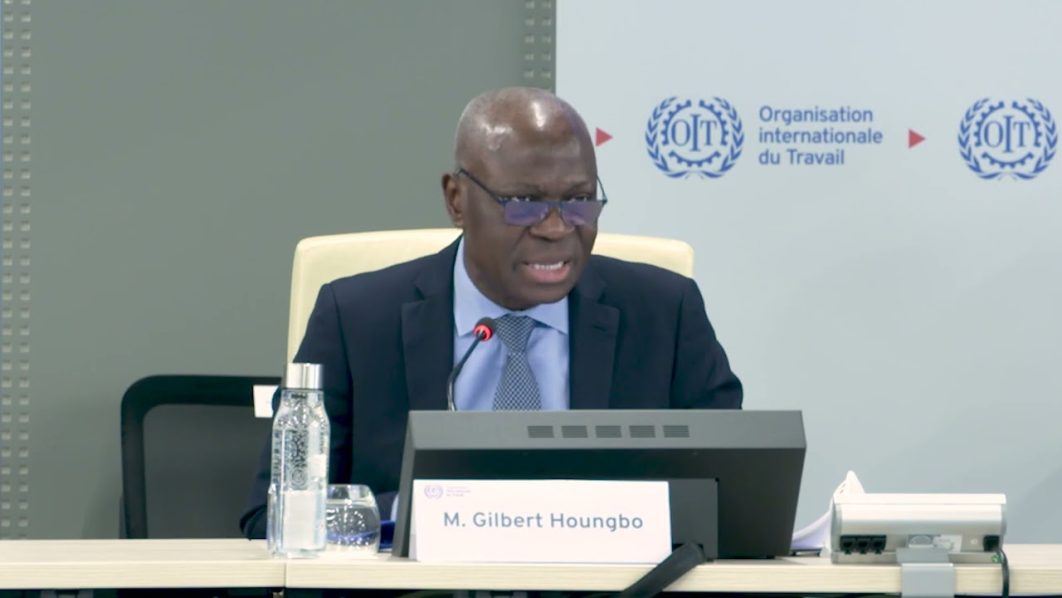
There are about 402 million people who are willing to work but are unable to find jobs globally, the International Labour Organisation (ILO) has said.
Out of these 402 million, there are 186 million unemployed people, 137 million who are temporarily unavailable to work and 79 million discouraged workers who have stopped looking for jobs.
The report, ‘World Employment and Social Outlook: Trends 2005’, noted that while the gap has been gradually narrowing since the COVID-2019 pandemic, it is expected to stabilize over the next two years.
The report also said the optimism that the global economy may be on the road to recovery after COVID-19 may have given way to despair as the world economy is now slowing down making it harder for the labour market to recover fully, a report by the ILO has shown.
In Nigeria and most developing economies, debt repayment, increase in energy costs, inflation and the cost of running businesses have compounded the economic woes of the people.
The report noted that global economic watchers were more optimistic in 2024 as global employment grew in line with the labour force, keeping the unemployment rate steady at five per cent.
However, the report, which was released in Geneva, Switzerland’s headquarters of the ILO yesterday, said youth unemployment showed little improvement, remaining high at 12.6 per cent while informal work and working poverty returned to pre-pandemic levels and low-income countries faced the most difficulties in creating decent jobs.
Speaking to the challenges to recovery, it blamed geo-political tensions, the rising costs of climate change and unresolved debt issues, which are putting labour markets under pressure for the underwhelming performance.
Indeed, economic growth stood at 3.2 per cent in 2024, down from 3.3 and 3.6 per cent in 2023 and 2022, respectively.
A similar level of growth is expected in 2025, although a gradual deceleration is expected to set in over the medium term. The report observed that while inflation has decreased, it remains high notably in Nigeria where food inflation hovers around 40 per cent, reducing the value of wages.
It stated that labour force participation rates have dropped in low-income countries while increasing in high-income nations, mainly among older workers and women.
The report equally found that gender gaps remain wide, with fewer women in the workforce, limiting progress in living standards.
“Among young men participation has fallen sharply, with many not in education, employment or training (NEET). This trend is especially pronounced in low-income countries, where NEET rates for young men have risen by nearly four percentage points above the pre-pandemic historical average, leaving them vulnerable to economic challenges.
“NEET rates in low-income countries rose in 2024, with young men reaching 15.8 million (20.4 per cent) and young women 28.2 million (37.0 per cent), marking increases of 500,000 and 700,000 respectively from 2023. Globally, 85.8 million young men (13.1 per cent) and 173.3 million young women (28.2 per cent) were NEET in 2024, up by 1 million and 1.8 million respectively from the previous year.”
It is not all gloomy as the report pointed out that green energy and digital technologies hold job generation capacity, saying: “The study identifies potential for job growth in green energy and digital technologies. Renewable energy jobs have grown to 16.2 million worldwide, driven by investment in solar and hydrogen power. However, these jobs are unevenly distributed, with nearly half based in East Asia. Digital technologies also offer opportunities, but many countries lack the infrastructure and skills to fully benefit from these advancements.”
Commenting on the findings of the report, the Director-General of the ILO, Gilbert Houngbo, stressed the urgent need for action.
“Decent work and productive employment are essential for achieving social justice and the Sustainable Development Goals. To avoid exacerbating already strained social cohesion, escalating climate impacts, and surging debt, we must act now to tackle labour market challenges and create a fairer, more sustainable future,” he said.






